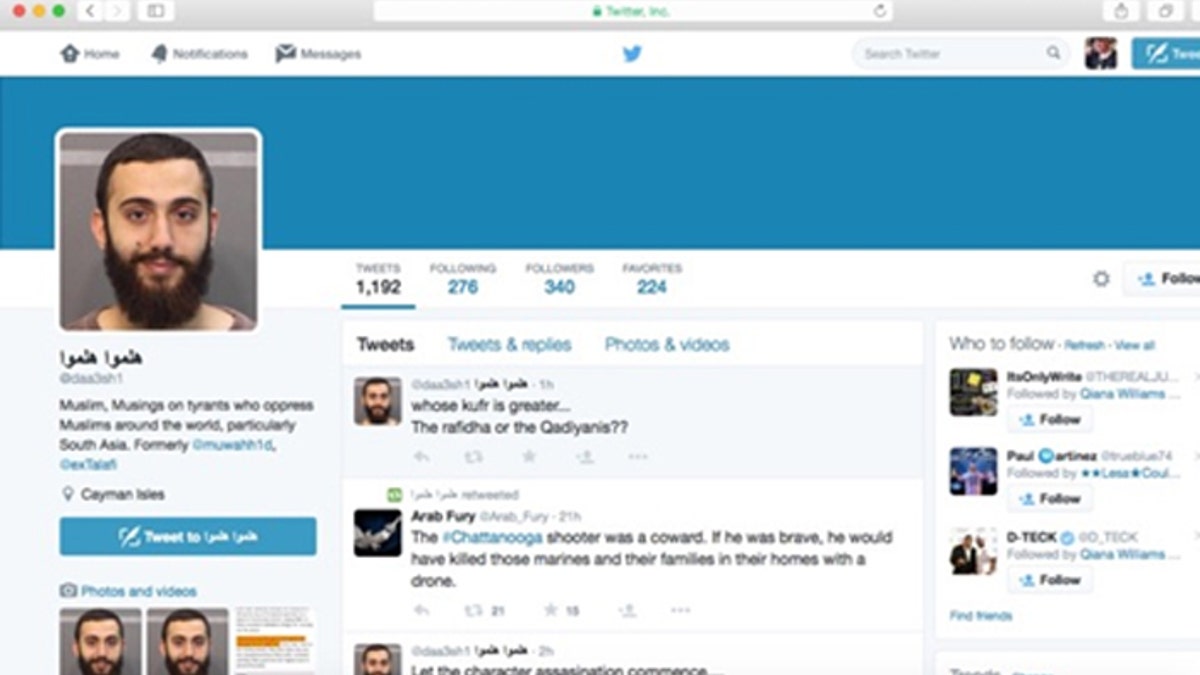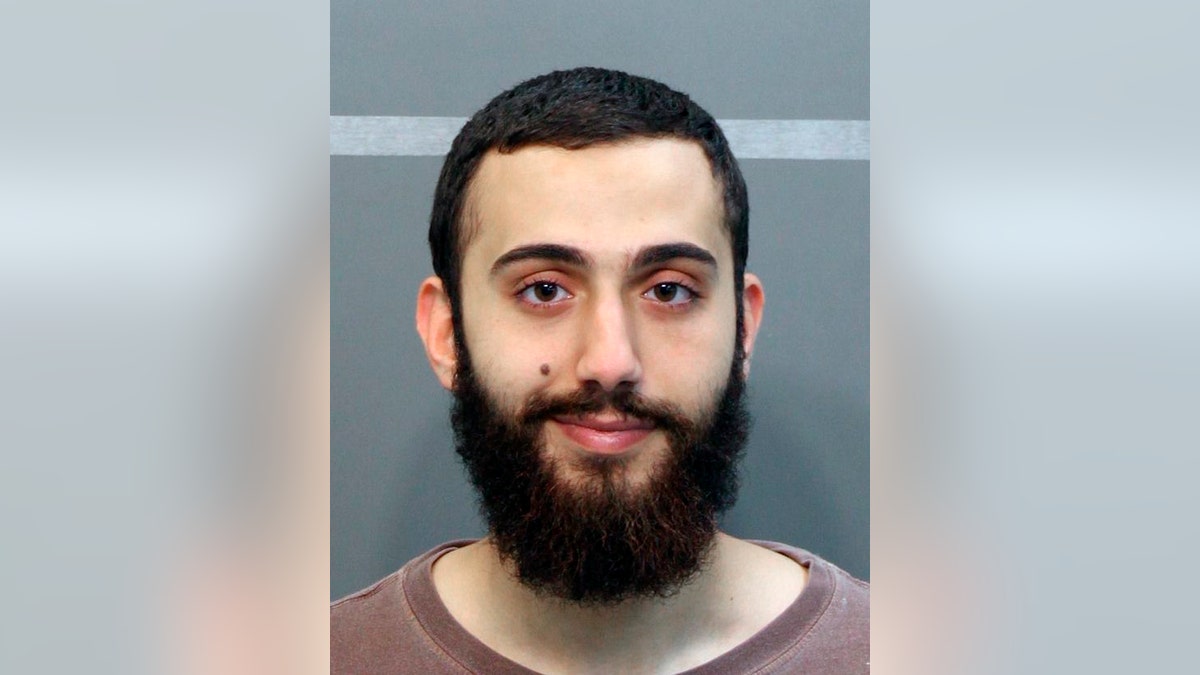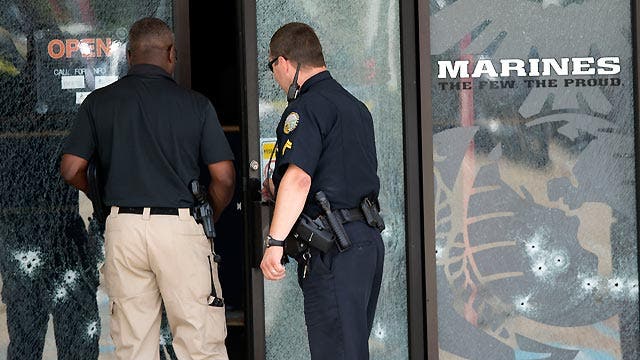Does Chattanooga attack herald new threat to the homeland?
Reaction from the 'Special Report' All-Star panel
U.S. investigators aren't ready to conclude that Thursday’s murder of four Marines was an act of terrorism, but terrorists are.
Dozens of Twitter accounts spewing jihadist bile have placed Mohammad Abdulazeez’s bearded face as their main images, and tweets believed to have been sent out by Islamic State radicals and sympathizers have proclaimed him a martyr. And according to one top federal official, the posthumous praise for the sick slaughter comes over the very forum that may have turned the suburban-bred college graduate into a killer.
“The threat is real, and it comes from the Internet,” said Rep. Mike McCaul, R-Texas. “This is a new generation of terrorist. This is not Bin Laden in caves with couriers anymore. This is what the new threat of terrorism looks like.”
“The threat is real, and it comes from the Internet.”
While the FBI is investigating the Chattanooga shooting as a terrorist act, the agency has not yet declared it one. But McCaul said Abdulazeez appears to have been motivated by ISIS to first open fire at a military recruiting center in a Chattanooga strip mall and then at a nearby military training center, where four Marines were killed.
“My judgment and experience is that this was an ISIS inspired attack. And it has been opened as a terrorism investigation by the FBI, which is a very significant event in this case,” McCaul said.
After the attack, Twitter accounts linked to terrorist groups exploded with praise for Abdulazeez. One twitter user with hashtags #IslamicState and #ChattanoogaShooting pledged “The War Has Just Begun. More to come fellas,” another taunts “We are in your homeland, payback time?” and a third attempts to justify the murders of the Marines by proclaiming they “participated in slaughtering Muslim babies.” Other twitter posts with hashtags “Chattanooga”, “ISIS,” and “Islamic State” vow “O American dogs, you will see wonders. Soon” and another mocks in broken English “Taste the blood of Americans …. Are very good.”

Terrorists around the world have honored Abdulazeez on their Twitter accounts. (Screengrab)
“The fact they are celebrating is not surprising at all. Whenever something bad happens in America, whether a terrorist attack or even a natural disaster, they see it as Allah punishing America,” said Ryan Mauro, National Security Analyst for the Clarion Project, a nonprofit organization that educates the public about the threat of Islamic extremism.
The bigger concern, Mauro said, is not only that there may be a “copycat” attempt, but also that the successful attack may lead to even more people being radicalized.
“ISIS feels their success is Allah’s endorsement,” Mauro said. “The success of ISIS attracts more people.”
Twitter is just one of several media outlets where terrorists and their sympathizers congregate to share their latest horrific acts and propaganda. But stopping the use of the web to celebrate and inspire terror is a daunting task, experts said.

This April 2015 booking photo released by the Hamilton County Sheriffs Office shows a man identified as Mohammad Youssduf Adbulazeer after being detained for a driving offense. A U.S. official speaking on condition of anonymity identified the gunman in shootings at two Chattanooga military facilities as Muhammad Youssef Abdulazeez, who shares the same age and address as the man in the photo. (Hamilton County Sheriffs Office via AP) (The Associated Press)
Veryan Khan, editorial director for the Florida-based Terrorism Research & Analysis Consortium, said her organization has tracked accounts on FaceBook, MySpace, Instagram, Pinterest, You Tube, Ask.FM, Tumblr, SendVid, Dump.to, Just Paste.it, Nasher.me, Manbar.me WordPress and Scribid. The use of foreign web sites, particularly in Russia, also is on the rise.
Terror groups like Islamic State have become so organized, they have their own media production houses, Khan said. In addition to filming, editing and posting videos of prisoner and traitor executions, they also film outreach and recruitment efforts and speeches by their leaders that glorify their acts.
While spokespeople for U.S. media outlets and others in the UK claim they cannot rid their sites of terrorist related materials in a timely manner because they are so bombarded with content from around the world, the U.S. based software company GIPEC has developed tools its founder said can assist in combating the global threat of on-line terrorism recruitment and the jihadist messaging.
The software, which its developer said also can be used to track piracy, counterfeiting and pornography, said there is no excuse for software companies not to remove terrorist-related content immediately.
“Terrorist organizations are spending time and money and using American social media platforms to recruit and incite sympathizers and ‘lone wolves’ here in the United States and around the world,” said a GIPEC analyst. “The social media companies have a moral responsibility to make their platforms safe from these horrific and directional posts that call for terrorist behavior that we have been witnessing over the past months.”


